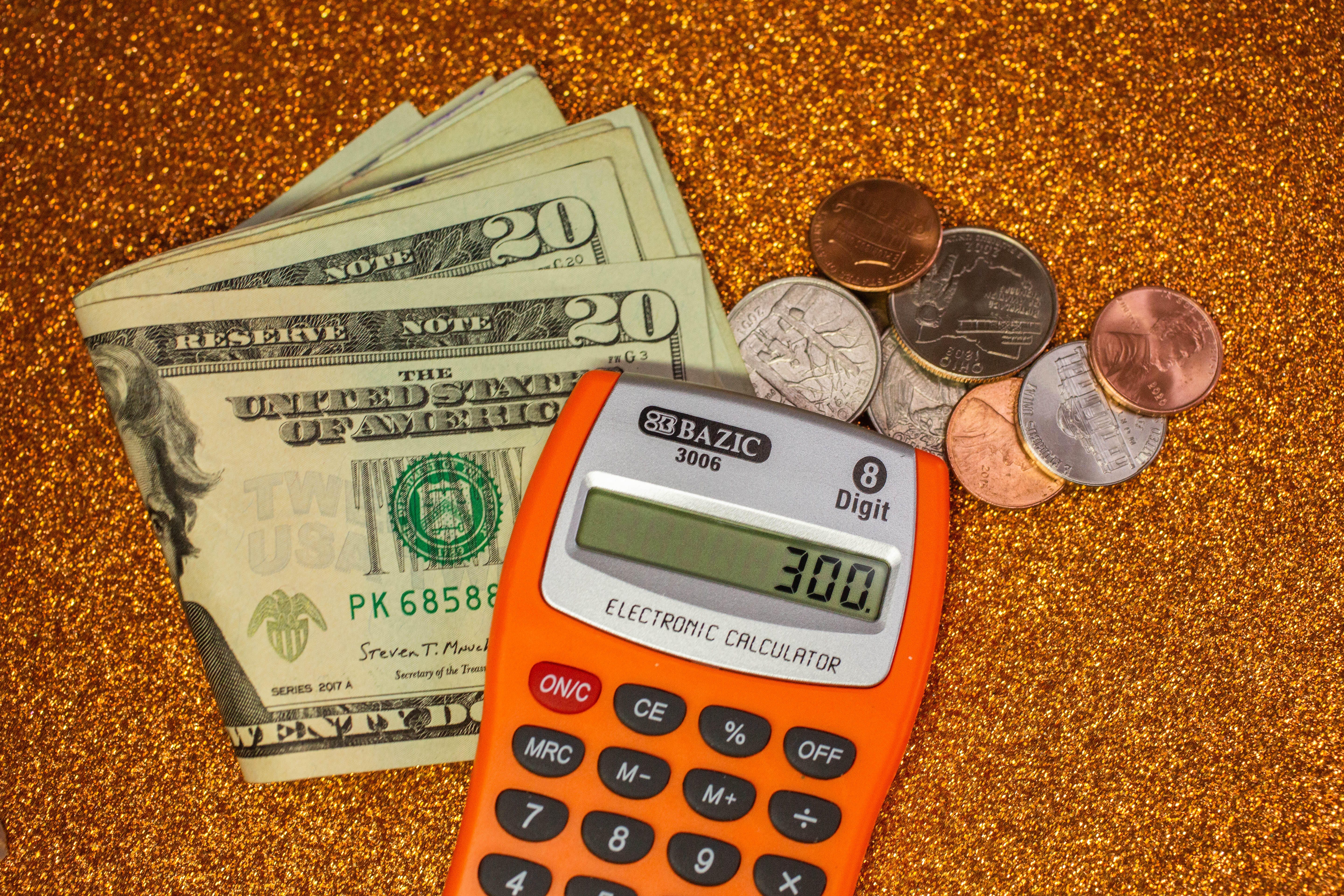
Incorrect payments might be due to outdated IRS information.
Sarah Tew/CNETFour child tax credit payments have been sent out since July -- the most recent one was deposited Oct. 15. But with each payment, eligible parents have reported experiencing problems. For instance, you might not have gotten a payment because of inaccurate or outdated information on your 2020 tax return, or because the IRS doesn't know your family is eligible. Or you might be one of the families that will get a paper check instead of direct deposit, so keep an eye on your mailbox. Note that USPS mail slowdowns could mean you're waiting a while longer to get your money.
According to a statement from the tax agency, a technical issue caused 2% of recipients to miss the September check. Some households received less than expected because a correction was made to a 2020 tax return, or because only one parent -- not both -- updated the IRS with their bank account or mailing address details.
It's not easy to get in touch with the IRS for help with payment problems, but you can take a few steps now before the November and December monthly payments come. Start by double-checking your information in the IRS Update Portal and making any necessary changes to your account before the next deadline, which is Nov. 1, 11:59 p.m. ET.
You may also need to check your eligibility to make sure you qualify. If everything adds up, we'll explain other ways to get clues about your money. Plus, here's the latest on the child tax credit possibly being extended until 2025 and unenrollment deadlines to keep in mind. This story was updated recently.
Why your child tax credit payment hasn't arrived yet
Here are a number of other possible reasons why your family hasn't received a July, August, September or October payment.
- If you're married filing jointly and only one spouse recently updated your bank account or address in the IRS Update Portal, you may have not received a September payment. This technical issue should be corrected shortly.
- Based on the latest IRS statement, 2% of families due to receive the credit, amounting to roughly 700,000 families, did not receive their Sept. 15 payment. The households affected should have received their payments in subsequent weeks, according to the IRS.
- Your payment was sent by mail and it's still held up by the US Postal Service. Due to a technical issue in August, millions of families received their checks by snail mail instead of direct deposit.
- You have a mixed-status household using an Individual Taxpayer Identification Number (or where one parent is an immigrant and the child has a Social Security number). Because of an IRS mishap, those families may not have received their first July payment, but should have qualified for adjusted amounts in August and September.
- Your family never filed a 2019 or 2020 tax return, so the IRS doesn't know that you qualify. If that's the case, it's too late to use the nonfiler signup tool online to register for payments because the last day to sign up was Oct. 15.
- You lived in the US less than half the year in 2019 or 2020, and the IRS doesn't think you qualify, even if you now have a primary residence in the US.
- Your new baby or adopted dependent became part of your household after you filed a 2020 tax return, and you haven't been able to update those details in the IRS portal yet (the option to add dependents should be available this fall).
- Your household's circumstances in 2020 disqualified you, even though your situation has now changed in 2021. This could be the case if your income was previously too high or if there was a shift in a custody arrangement.
- You already unenrolled from this year's advance monthly payments using the IRS Update Portal. If that's the case, your family will receive the credit when you file your taxes in 2022. If you decide to reenroll in the monthly payment program, you'll be able to do so later this fall.
Reasons you haven't received a child tax credit payment
| The problem | What to do |
|---|---|
| You didn't file a 2019 or 2020 tax return | File your taxes in the spring |
| Your payment is coming in the mail | Give it time to arrive, as it could take weeks |
| You unenrolled from advance monthly payments | Reenroll eventually through the Update Portal |
| Your bank info or mailing address is wrong | Change your details in the Update Portal now |
| Your income or number of kids has changed | Update your details when that option is made available |
| You can't find any reason why you didn't get a payment | It may be time to file a payment trace with the IRS |
Why your child tax credit payment amount was wrong
There are several reasons why families are reporting inaccurate payment amounts. First, you'll want to quickly verify your eligibility through the Eligibility Assistant. Then we suggest using CNET's child tax credit calculator to see how much you should be receiving based on your income and the ages of your dependents.
One possible reason for a lower payment is if only one spouse changed an address or bank account in the IRS Update Portal. In that case, the other spouse's half could have gone to the old address or bank account. Another reason why parents are getting inaccurate payment amounts is if the IRS processed your 2020 tax return late (or it wasn't filed until recently), and the agency only recently adjusted payment eligibility amounts for the previous monthly check.
An additional complication is that there's currently no way to inform the IRS of household changes -- like adjusted gross income or number (or ages) of children -- between the 2020 and 2021 tax seasons. The tax agency says it will eventually add more functionality to the Update Portal to allow parents to add or subtract qualifying children, or report a change in marital status or income.
Keep in mind that parents of children younger than age 6 can receive up to $300 per month or $250 for children aged 6 to 17, but those amounts phase out for higher earners. So, if your income was significantly higher last year or you didn't claim a dependent on your 2020 tax return, you might get less of the credit than you should this year based on the prior figures that the IRS has on file.
If your family didn't get a payment until October, your total advance credit will be divided over three months instead of six months, which will result in larger advance monthly payments, according to the IRS.
Some parents may also see an incorrect (or higher) payment amount in the Update Portal due to having a closed or invalid bank account on file. According to the IRS (question G12 on that page), if the agency has to reissue a payment as a paper check after a failed attempt at direct deposit, the total amount that appears in the payments processed section of the portal may be double, even if your family received the correct amount by mail. The IRS is currently working to fix this error.
Here's how to check on your payment status
The easiest way to see what's happening with your previous checks is to log in to the IRS Update Portal to view your payment history. To use it to manage all of your advance payments, you'll need to first create an ID.me account.
If the portal says your payment is coming by mail, give it several business days to arrive. If you have direct deposit set up, make sure all the information is accurate. If you haven't set up banking details in the portal, or if the bank account on file with the IRS has closed or is no longer valid, you should expect all further payments to come as paper checks.
If your payment history in the portal says that the money was sent by direct deposit, check your bank account again in the next few days to make sure it's cleared. According to the White House website, transactions will show the company name "IRS TREAS 310" with a description of "CHILDCTC" and an amount for up to $300 per kid (unless there's been an adjustment due to a missing payment). Don't get this deposit confused with those for stimulus checks, which show up as "TAXEIP3" when deposited. Also, if you're waiting on a tax refund, it'll show up as "TAX REF."
If you've verified your eligibility, and your account says that your payments were issued but they're still missing, you may need to file a payment trace with the IRS. To do that, you'll need to complete Form 3911 (PDF) and mail or fax it to the IRS. Only do this if it's been at least five days since the scheduled deposit date, or four weeks since the payment was mailed by check. We explain how to file a payment trace here.
What if you're not eligible for the child tax credit, but still got a check?
With the IRS sending out millions of child tax credit payments, along with keeping up with income tax refunds and unemployment tax refunds, it's certainly possible the agency could have made a mistake and sent you a check even if you don't qualify. For instance, some people who weren't qualified for stimulus checks still received payments. It could also be that your family qualified in prior years but will not qualify when they file their 2021 tax return in 2022.
If you're absolutely positive you're not eligible for this year's enhanced child tax credit payments but you got a payment, you'll need to return that money to the IRS. Start by using the Update Portal to unenroll from future payments -- the next deadline is Nov. 1, 11:59 p.m. ET. This will help you avoid having to pay back more money when you file taxes in 2022.
Keep in mind that both parents need to unenroll separately. If your spouse unenrolls and you don't, you'll get half of the joint payment you were supposed to receive with your spouse.
What to do if you got sent too much money and don't want to owe the IRS next spring
If you're eligible for the full amount of child tax credit money, you won't have to pay it back. Child tax credit payments do not count as income. However, if you no longer qualify for the full amount but you receive the full amount anyway, you may need to pay back that extra money.
An overpayment from the IRS may occur if your income went up this year (meaning you're getting too much money based on old tax info) or if your child is aging out of a payment bracket this year (meaning the IRS is determining amounts for a 5-year-old instead of your 6-year-old). The age brackets for dependents apply to how old your child will be at the end of this calendar year. The IRS says you should be able to sign in to the Update Portal to make these kinds of adjustments to your child tax credit account sometime this month.
The agency is using what it calls "repayment protection," so if you do receive an overpayment but fall below a set income level, you don't have to pay the money back. Above that income level, you will have to pay back some or all of the extra funds. Here's more on taxes and how repayment protection works.

The next deadline to opt out of the remaining monthly child tax credit payments is Nov. 1.
Sarah Tew/CNETWhat to know about an extension to the child tax credit
As of right now, the increased payments are still temporary, just for the 2021 tax year. That means after you get your final payment with your tax refund in 2022, the child tax credit could revert back to its original amount from previous years.
On Sept. 15, some 450 economists signed an open letter to congressional leaders calling to extend the child tax credit, noting that it could "dramatically improve the lives of millions of children" and help reduce poverty.
Now Washington is debating on extending this year's changes, but some lawmakers are pressing for a work requirement. The current changes to the 2021 child tax credit made the credit $3,600 for children under age 6 and let families qualify if they have little or no income.
We'll continue to update this story as we find out more.
Here's how to opt out of advance payments and how to track down your child tax credit payment if you didn't receive it. Not sure you got the right amount? Use CNET's child tax credit calculator to see how much you should get.
"some" - Google News
October 17, 2021 at 10:00PM
https://ift.tt/3aNBkps
IRS child tax credit payment problems? Here are some solutions - CNET
"some" - Google News
https://ift.tt/37fuoxP
Shoes Man Tutorial
Pos News Update
Meme Update
Korean Entertainment News
Japan News Update
Bagikan Berita Ini















0 Response to "IRS child tax credit payment problems? Here are some solutions - CNET"
Post a Comment